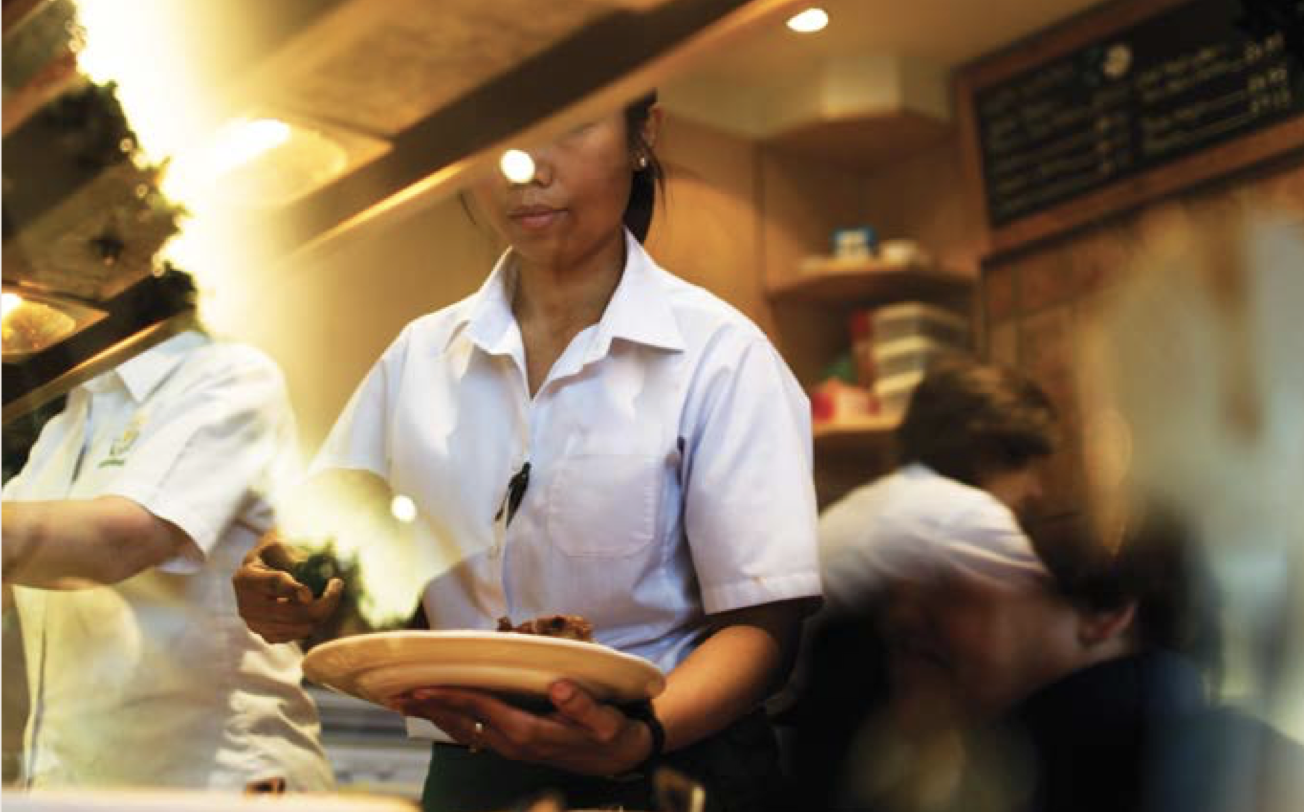
Immediately following the pandemic, restaurant businesses in different parts of the world found themselves in a candidate-driven job market that put workers in the driver’s seat and made hiring and retaining employees much more difficult. While this shift also occurred in Asia, restaurateurs in Hong Kong and China have been dealing with two quite different dynamics.
“Finding staff in China has become the most difficult part of any F&B project, whether it’s casual or fine dining,” says FCSI Associate member Bruno Magro, managing director of Think Food Concepts, a hospitality consulting and management firm operating in China and other Asian markets.
The trend, Magro explains, started before the pandemic and initially affected the largest cities: “Until 10 years ago, most hotel and restaurant openings were concentrated in first-tier cities such as Beijing and Shanghai, and that would attract a lot of workers from other parts of the country. Today, however, there are many new establishments opening in third- and fourth-tier cities all around China, so people no longer need to migrate to find jobs,” says Magro.
However, restaurants in smaller cities are struggling too: “We have worked on projects where new venues were not able to open because they couldn’t hire enough people locally,” he adds.
What drives candidates away from restaurant jobs in China is mainly a lack of recognition: “The old mentality still sees restaurant staff as cheap labor you can replace easily, so naturally people choose different industries where they can get better treatment. This is particularly true for waiters and chefs, while barista and bartender jobs tend to be more popular,” says Magro.
Pathway for talent
In Hong Kong, the hospitality job market remained largely unaffected: “Hiring
for hospitality in Hong Kong is challenging, but it’s always been like that, we haven’t seen a massive difference. In spite of a bit of staff shortage initially, there was never a real lack of local or international professionals,” says Nathan Garrod, founder of Cutting Edge Recruitment, an agency specialized in F&B and hospitality operating in Asia, London, and the Middle East.
Hong Kong is part of an international hospitality network, a sort of pathway
for talented workers that stretches from London to Australia, and includes Dubai, Singapore, and Saudi Arabia. That, Garrod explains, helped provide a constant supply of qualified candidates.
Another factor was the ability of local businesses to adapt to the new job market: “We’ve seen a real change in how restaurants approach staffing. They know they need to offer more vacation days, training, and long-term job prospects, if they want to attract the best talents.”
Retaining hospitality employees: “Old- fashioned roles with split shifts and very few days off have become unattractive. For candidates today it’s not all about
the salary; they want to pursue other interests outside of work. Restaurant businesses need to help them pursue those interests and build relationships with them from a compassionate angle. What’s also important is to work with a recruiter who is specialized in hospitality.”
An approach based on sincerity
In China, this change hasn’t really happened yet: “Most restaurants don’t have effective HR departments,” says Magro. “They may go as far as creating
an operations manual and KPIs, but then don’t really put them into practice. This problem cannot be solved by just a few businesses. The whole sector should come together to build better opportunities and better lives for people.”
“The key is to build an approach to HR based on sincerity,” adds Magro. “Even if you’re a small restaurant, it’s important to really take care of your team, not just say you’re going to do it, providing more training and helping them understand where they can be in the future.”
Andrea Tolu
